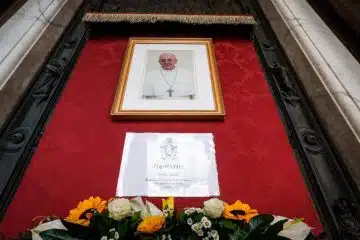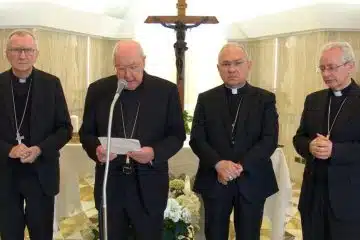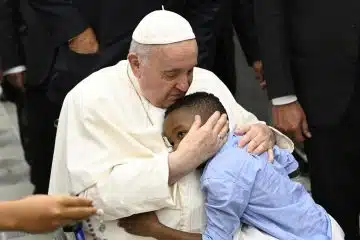Maryland Catholic bishops: Fighting racism requires more than words
CNA Staff, Jun 15, 2020 / 02:50 pm MT (CNA).- The Catholic Church should be at the forefront of efforts to address racial inequality – not only through words, but through actions, said the bishops of Maryland on Monday.
In a June 15 letter, the Maryland bishops said “we must seek to know and understand one another and to work to break down barriers through listening, prayer and a commitment to change hearts and minds.”
“However, prayer and dialogue, alone, are not enough,” they added. “We must act to bring about true change.”
The Maryland Catholic Conference released the letter amid continuing protests around the country following the May 25 death of George Floyd in police custody. Floyd, a black man, died after an officer with the Minneapolis Police Department knelt on his neck for almost nine minutes.
Protestors in the wake of Floyd’s death have called for justice for people of color who have been killed by the police, as well as efforts to recognize and address broader issues of racial inequality in society.
The Maryland bishops recognized that the racial injustice which has been part of society for centuries has also existed within the Church.
“With regret and humility, we must recognize that as Catholic leaders and as an institution we have, at times, not followed the Gospel to which we profess and have been too slow in correcting our shortcomings,” they said.
“For this reason, it is incumbent upon us to place ourselves at the forefront of efforts to remove the inequalities and discrimination that are still present in Maryland and our nation today.”
The bishops recognized efforts within the Church to fight racial inequality, such as desegregating Catholic schools and parishes in the archdiocese at a time when segregation was common and largely accepted. Still, they said, more work is needed to end the sin of racism.
“Although many people have acted in good faith in service and prayer to bring about just change, to acknowledge the dignity of each life, and to love one another, our current crisis causes us to reflect on how much we still must do together to make impactful progress,” the bishops said.
The ongoing protests and rallies, they said, “make it clear that the conscience of our nation is on trial as questions of race and equality confront each and every one of us.”
Each person, they said, should work prayerfully to identity and eliminated any hatred in their own heart.
They highlighted the enriching presence of black Catholics in Maryland, pointing to the National Black Catholic Congress and the Josephite priests, who serve the local black community. They also praised the witness of Mother Mary Lange, who in the 1800s founded the first Catholic school for black children in the U.S., as well as the first religious order for black women. Lange’s sainthood cause is currently open, and she is recognized as a Servant of God.
“Over the years, the Catholic Bishops of Maryland have stood firmly in our support of laws that sought to bring about justice and an end to unequal treatment based on race,” the bishops said in their letter, renewing their commitment to such efforts, including prison reform, educational opportunities, health and maternal care, fighting discrimination in housing and the use of the death penalty, and restorative justice plans.
“United, we seek healing, harmony and solutions that recognize that every person has been created in the image of God and that every person possesses human dignity,” they said.
The bishops prayed for the Holy Spirit’s guidance for religious and political leaders as they work to oppose discrimination, promote racial equality, and heal wounds from past injustices.
“We commend the efforts of our state lawmakers to convene working groups to discuss legislative initiatives that are needed for reform, transparency, and racial equality,” they said.
“We look forward to playing an active part in these conversations on both a state and national level, and to lending our voices to those whose own have been stifled or altogether silenced by those who seek to quiet them.”













